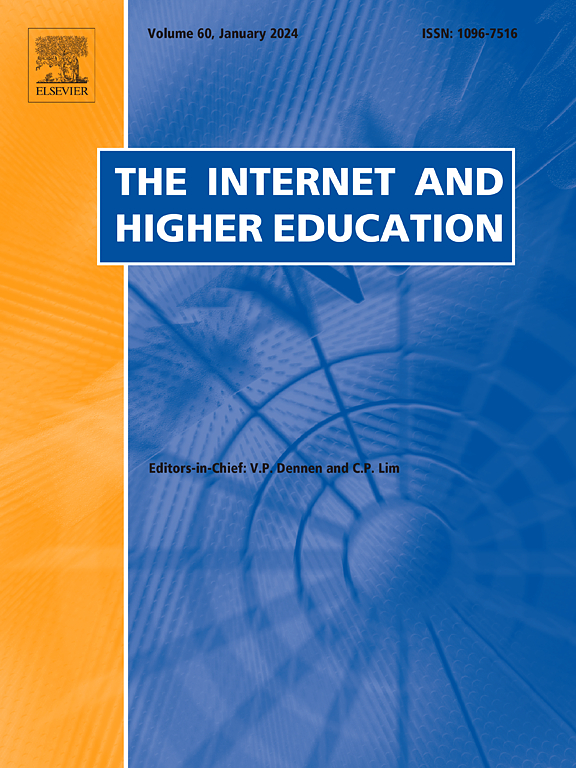Beyond hype: Is ChatGPT-generated content effective in class preparation among academic instructors?
IF 6.8
1区 教育学
Q1 EDUCATION & EDUCATIONAL RESEARCH
引用次数: 0
Abstract
Although the adoption of AI-generated content, such as ChatGPT, has extensively transformed traditional teaching and learning paradigms, the critical question of the effectiveness of ChatGPT content in lesson preparation remains largely unanswered. Therefore, this research aims to understand the determinants that drive or hinder this effectiveness, which is crucial to realizing the full potential of AI technologies in the academic landscape. Relying on a global sample of academic instructors surveyed, we found that individual-level factors, such as instructor confidence, and frequency of use had a positive effect on ChatGPT-generated content effectiveness in class preparation. However, academic work intensity had a negative association with effectiveness. The study also revealed that institutional-level factors, such as training and support, institutional culture, and course complexity exerted a positive impact on ChatGPT content effectiveness. Additionally, the analysis reported that the course complexity-moderated interactions of instructor confidence and work intensity on the effectiveness of ChatGPT content in lesson preparation were significant. We also revealed that the frequency of ChatGPT use significantly moderated the nexus between institutional-level factors (e.g., training and support, and institutional culture) and individual-level factors (e.g., instructor confidence and work intensity) with ChatGPT content effectiveness. The study also provides actionable insights for a wide range of stakeholders, such as higher educational institutions (HEIs), academic instructors, regulators in higher education, and EdTech developers, to understand how to empower educators to leverage AI tools more effectively, ultimately enhancing teaching efficiency and education outcomes.
超越炒作:chatgpt生成的内容在学术教师的备课中有效吗?
尽管采用人工智能生成的内容(如ChatGPT)已经广泛地改变了传统的教学范式,但ChatGPT内容在备课中的有效性这一关键问题在很大程度上仍未得到解答。因此,本研究旨在了解驱动或阻碍这种有效性的决定因素,这对于实现人工智能技术在学术领域的全部潜力至关重要。根据对全球学术教师的调查样本,我们发现个人层面的因素,如教师信心和使用频率,对课堂准备中chatgpt生成的内容有效性有积极影响。然而,学习强度与学习效率呈负相关。研究还发现,制度层面的因素,如培训和支持、制度文化和课程复杂性对ChatGPT内容有效性产生了积极的影响。此外,分析报告指出,课程复杂性调节的讲师信心和工作强度对ChatGPT内容备课效果的影响是显著的。我们还发现,使用ChatGPT的频率显著调节了机构层面因素(例如,培训和支持,以及机构文化)和个人层面因素(例如,教师信心和工作强度)与ChatGPT内容有效性之间的关系。该研究还为广泛的利益相关者(如高等教育机构、学术导师、高等教育监管机构和教育技术开发商)提供了可操作的见解,以了解如何使教育工作者更有效地利用人工智能工具,最终提高教学效率和教育成果。
本文章由计算机程序翻译,如有差异,请以英文原文为准。
求助全文
约1分钟内获得全文
求助全文
来源期刊

Internet and Higher Education
EDUCATION & EDUCATIONAL RESEARCH-
CiteScore
19.30
自引率
4.70%
发文量
30
审稿时长
40 days
期刊介绍:
The Internet and Higher Education is a quarterly peer-reviewed journal focused on contemporary issues and future trends in online learning, teaching, and administration within post-secondary education. It welcomes contributions from diverse academic disciplines worldwide and provides a platform for theory papers, research studies, critical essays, editorials, reviews, case studies, and social commentary.
 求助内容:
求助内容: 应助结果提醒方式:
应助结果提醒方式:


